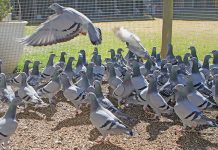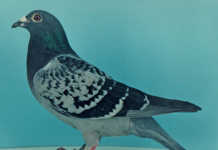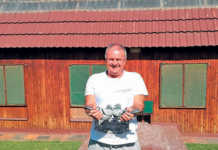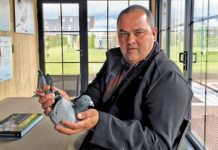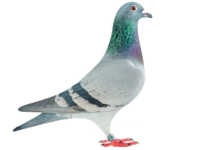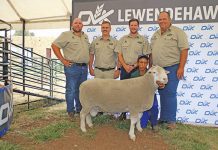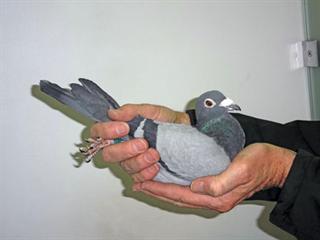
It’s not generally known, but modern racing pigeons never existed as a species. They were ‘created’ in a lengthy process of selective breeding. Experimental crosses were bred and tested for speed, endurance and direction-finding (homing) ability. A well domesticated bird would be eager to return to the loft – and its caregiver – as quickly as possible.
Today’s racing pigeons have the ability to bond with each other, and connect to their loft environment and their caregiver. Individual pigeons show varying degrees of affection; some seeking out human attention, others not as friendly. As domesticated animals, racing pigeons are dependent on their handlers for shelter and food. In short, the loft should be a place of comfort birds can’t wait to return to during a competition.
Stayers
Even if conditions aren’t ideal, some pigeons will settle in and ‘survive’, becoming the dominant birds in the loft. These are ‘stayers’, who aren’t bullied at the feed tray and get the best perch spaces for a good night’s rest. Their more timid loft mates will be content to sleep on the floor. These birds are most likely to become ‘fly-aways’.
Introducing overcrowding isn’t essential when it comes to identifying the bold and the timid. You can spot these birds through careful observation. Young birds need a chance to develop and can’t expect to hold their own against mature pigeons.
Character
Ultimately, what we’re referring to here is character. It can be dependent upon – or separate from – physical and genetic qualities. It’s about temperament and basic behaviour in the loft. A racing pigeon can be calm or nervous, aggressive or timid. Basic character traits are mostly genetically inherited, but can be shaped by the environment.Intelligence is part of a racing pigeon’s character. This is linked to the bird’s direction-finding ability and its ability to stay on the shortest flight route home.
A ‘clever’ pigeon will instinctively preserve its energy during flight. While a certain amount of nervousness or wildness in the loft may be forgivable, lack of capacity to connect with loft mates and the caregiver in favourable conditions may indicate a lack of intelligence. Bear in mind, some youngsters are slow learners or late maturers and this should not be seen as a ‘lack of intelligence’. Content, happy pigeons are winners. When you approach their loft you’ll hear the music of bonding – non-stop cooing.
Contact Thomas Smit at [email protected]. Please state ‘Pigeons’ in the subject line of your email.


